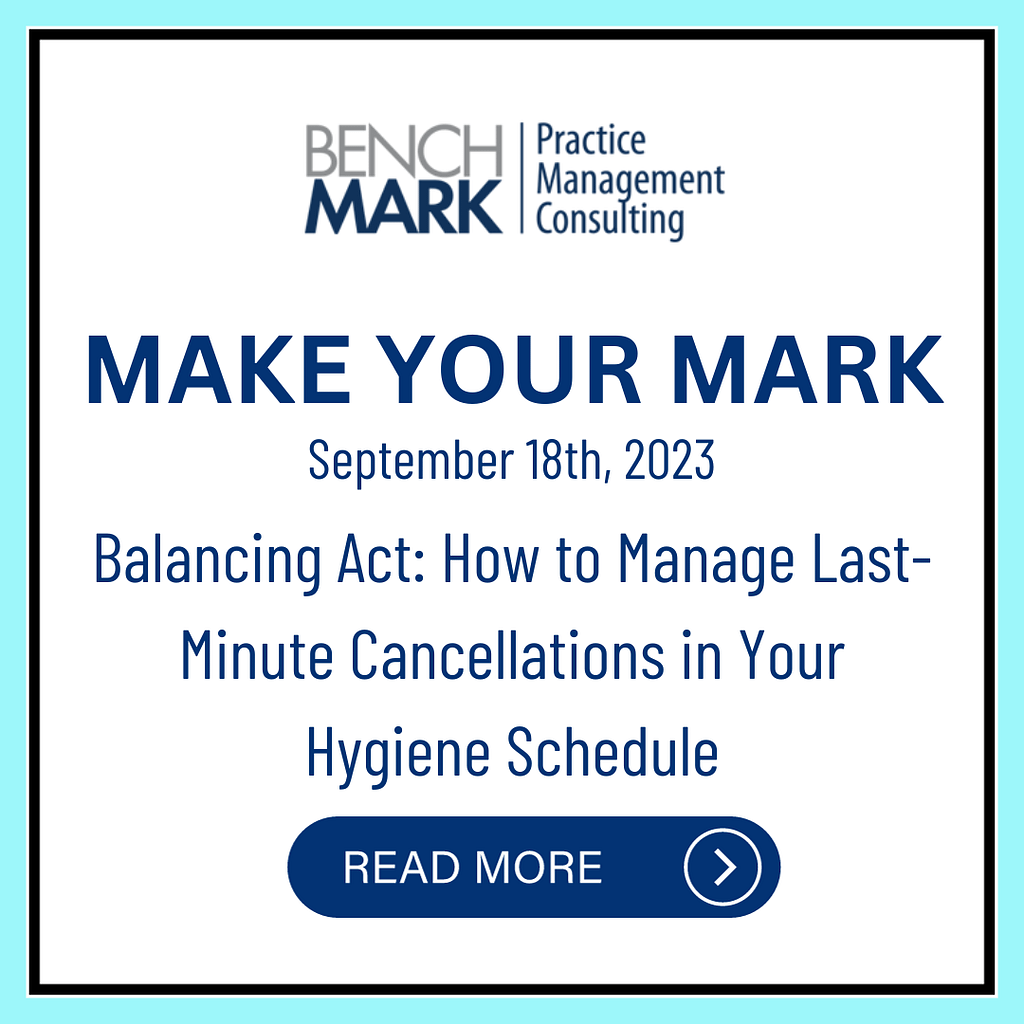Managing a dental practice involves a multitude of tasks, and one of the most challenging is dealing with last-minute cancellations in your hygiene schedule. These sudden gaps not only result in lost revenue but can also disturb the workflow of your practice. Here’s a step-by-step guide on effectively managing these inevitable but disruptive occurrences.
1. Develop a Comprehensive Cancellation Policy
A well-articulated cancellation policy sets the ground rules. Make sure it’s clearly communicated to your patients both at the time of booking and as a part of your appointment reminders. This can act as a deterrent for avoidable last-minute cancellations.
Developing a robust policy is the first line of defense. It also provides your front office with a script and a set of procedures to follow when cancellations do occur. By making the conditions for cancellations clear, you’re setting a professional tone for your practice.
2. Leverage Technology for Automated Reminders
Use automated SMS and email reminders to notify patients of upcoming appointments. These reminders can significantly reduce the frequency of last-minute cancellations.
The automation of reminders can free up valuable time for your front office staff, enabling them to focus on other patient engagement activities. Additionally, these automated systems often allow for patients to confirm or reschedule their appointments, providing early alerts to potential cancellations.
3. Utilize a VIP List
Always maintain an up-to-date VIP list of patients who can come in on short notice. When a last-minute cancellation occurs, this list can be a lifesaver.
A well-managed VIP list not only fills in the unexpected gaps but also caters to your patients’ needs, making them feel valued and accommodated. This helps in building patient loyalty, a crucial element for any practice.
4. Cross-Train Staff to Fill Gaps
Last-minute cancellations are also an opportunity for internal development. Use this time for quick staff training sessions or to catch up on administrative tasks.
In times of a sudden schedule gap, having cross-trained staff members who can switch roles to perform other essential tasks can ensure that the time isn’t wasted and adds versatility to your practice.
5. Perform a Root Cause Analysis
It’s essential to understand why cancellations are happening to address the issue effectively. Analyze trends, speak to your team, and even consider patient feedback.
Understanding the reasons behind frequent cancellations can provide actionable insights. Maybe it’s a seasonal trend, or perhaps it’s tied to certain services. Knowing the ‘why’ can help you proactively manage your schedule and implement preventive measures.
6. Establish Clear Communication Channels
Effective communication is key in mitigating the effects of last-minute cancellations. Ensure your team knows the procedures for informing relevant departments and making quick adjustments to the schedule.
Having a well-defined communication system enhances the efficiency of your practice. It minimizes confusion and allows your team to pivot quickly, reallocating resources to ensure optimal operation during unforeseen gaps.
7. Monitor and Update
Your approach to managing last-minute cancellations should be dynamic. Continually monitor the effectiveness of your strategies and be willing to make adjustments as needed.
This final step closes the loop, allowing your management processes to be a living system that adapts and evolves according to the specific needs and challenges of your practice.
By implementing these seven strategies, you can turn the challenge of last-minute cancellations into an opportunity for improved practice management and patient engagement.




